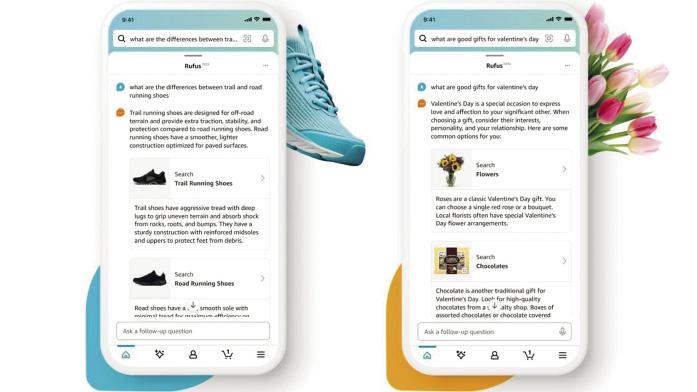Artificial intelligence is the top trend of the year
According to research by Mintel, artificial intelligence (AI) – or more precisely, generative artificial intelligence – has been the subject of increasing hype in recent years. If brands wish to maximise the potential of this new technology, it is important to understand and take into account consumers’ feelings and fears about AI.

The hype around generative AI will continue to grow in 2024, driven by consumers becoming more accustomed to AI interfaces and innovative retailers
This article is available for reading in Trade magazin 2024/4
Generative AI has the undeniable potential to accelerate and improve the efficiency of everyday tasks in many areas. The technology is exploding and no one can predict how far it will go, but it will definitely have a disruptive impact on our lives. Everything that has an impact is bound to have a side effect too, and in this case it is uncertainty, as AI can also be used in harmful ways. This uncertainty and contradictions are also reflected in consumer opinion. For example while the French have serious reservations about the technology (only 19% of consumers who have heard of it would rely on it for an important decision), one in two Chinese feel that AI could even be a friendly companion. So when developing an AI strategy, it is important not to ignore the market and cultural characteristics that shape the environment in which a brand or retailer operates.
Helping wherever it can
Given the significant geo-cultural differences in consumer attitudes, it is natural that there will also be big differences in what consumers use AI for and to what extent. While Germans are not so enthusiastic about technology itself, they rely heavily on AI to help them find information – 44% see AI as having a positive influence on this. Today there are already AI-powered search engines, such as Google Bot or Microsoft Bing, and even those using the Microsoft 365 package essentially get a generative AI assistant, called Copilot. Rossmann is already using Copilot to help the work of store employees.
It is clear that this technology is fundamentally changing the entire customer journey. As more and more of these tools are introduced, consumers will become more accustomed to having quick access to relevant information about their personal situation, and also to being able to tell digital tools exactly what they want them to do. So consumers’ expectations are rising and to remain competitive, brands need to meet the growing online efficiency expectations of consumers – and AI is an obvious solution.

Volkswagen Brazil uses generative AI to bring a popular Brazilian singer to life on screen
Goals can only be achieved with flawless content
It seems that consumers’ attitudes towards AI-generated content – art, books, articles, music and movies – are varied, but as they aren’t categorically opposed to it, brands have some leeway to make use of such content. Provided they can convince them of their value, for example by using only high-quality AI-generated content, because poor AI quality can easily give consumers the impression that the brand is simply trying to save money, which can lead to further negative associations. Technology can offer more than this: it allows brands to create something unique, something that wouldn’t be possible without AI, e.g. in its 70th anniversary advertisement, Volkswagen Brazil used generative AI to bring to life a popular Brazilian singer, singing in a traditional Volkswagen Bus, while her still living daughter is driving a modern version of the vehicle alongside her.
Mintel’s data shows that younger consumers are much more open to AI content. In Germany around half of Generation Z thinks that AI-generated content is just as appealing as human content: 44% of Germans have already used the technology and 25% would be willing to do so again. As is common with the emergence of any revolutionary technology, there is also resistance to the trend and a counter-trend. A significant proportion of consumers around the world – even in countries with an overall positive attitude to AI – say they prefer things created by humans, so brands must strive to find the golden mean.

//
Amazon launches Rufus, an AI-based shopping assistant

Amazon has launched Rufus, a new generative AI-powered shopping assistant that answers shopper questions about the retail giant’s vast catalogue of products. The new technology can help shoppers learn how to search for specific product categories, compare them, shop for special occasions, collect recommendations and ask product-specific questions. The large language model behind Rufus has been trained on Amazon’s huge product catalogue, customer reviews and community Q&As. //
Victoria’s Secret uses AI to assist in online shopping

The popular lingerie company is using Google Cloud Vertex AI to improve searching and personalise product recommendations on its online platform. Victoria’s Secret has partnered with Google Cloud and is now using generative AI virtual assistants and AI to optimise its inventory forecasting, and to offer personalised product recommendations based on individual customer profiles. Victoria’s Secret has recently also introduced a new search feature, which makes it possible for shoppers to search using images. //
Consumers remain positive about AI
A growing number of US consumers are using AI in their everyday lives, and are now prepared to encounter it during the shopping journey. According to a 1,000-shopper survey by Intellias, 33% of consumers – 60% in Gen Y and 49% in Gen Z – have already used generative AI tools. Around 40% of US shoppers are aware that retailers are using AI in the customer journey, and 44% believe it can help retailers and brands create a more personalised shopping experience. Intellias says the hype around generative AI will continue to grow in 2024, driven by consumers becoming more accustomed to AI. //
Related news
Forced paths: trends and decisions in 2026
🎧 Hallgasd a cikket: Lejátszás Szünet Folytatás Leállítás Nyelv: Auto…
Read more >The keys to corporate growth in 2026: AI, acquisitions and rapid transformation
🎧 Hallgasd a cikket: Lejátszás Szünet Folytatás Leállítás Nyelv: Auto…
Read more >Related news
The impact of the forint exchange rate on GDP growth
🎧 Hallgasd a cikket: Lejátszás Szünet Folytatás Leállítás Nyelv: Auto…
Read more >Cheese-cocoa-peach jam: these are the most popular cookie flavors
🎧 Hallgasd a cikket: Lejátszás Szünet Folytatás Leállítás Nyelv: Auto…
Read more >









